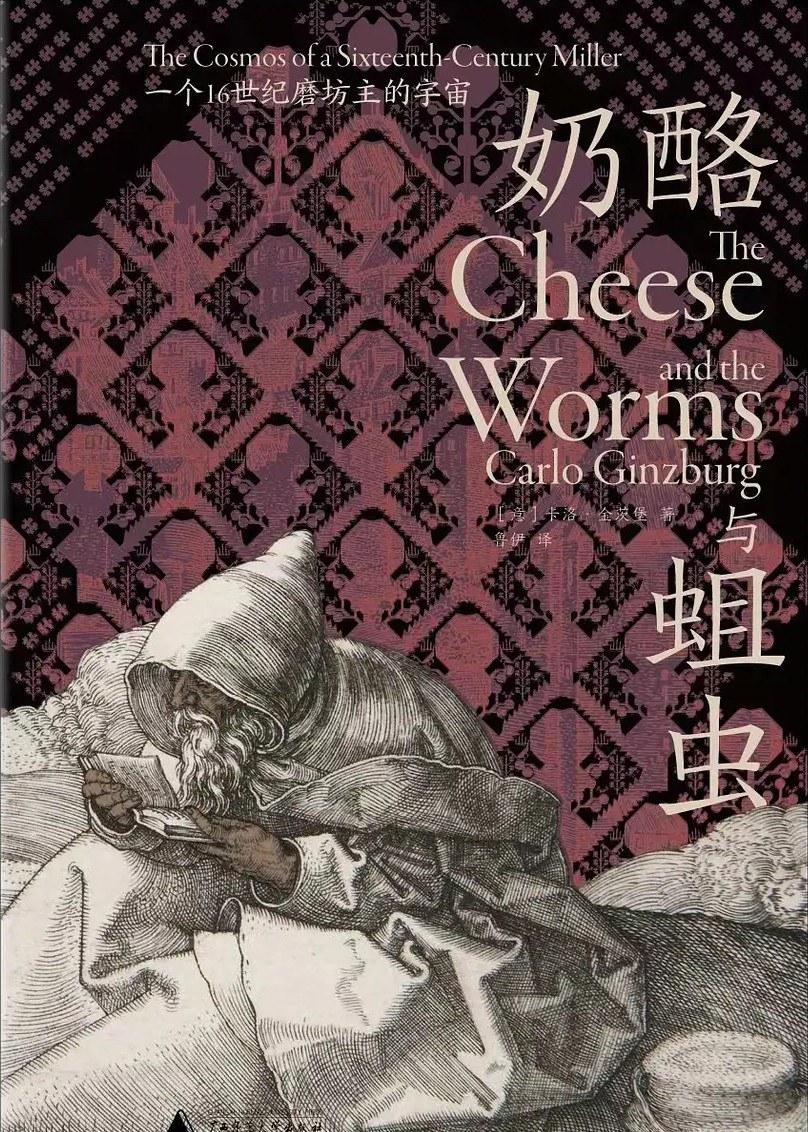Most of the historical stories we are familiar with are the stories of emperors, princes and nobles, or talented people. In short, they are all famous figures in the history of Qingshi, and pay little attention to the lives of the peddlers and pawns in the city.
First, most of the low-level characters are illiterate or too busy with life to record their own stories. Second, the dynasties have changed, the war is merciless, and the words left by the little people are even more difficult to be retained, and even if they are preserved, they are hidden in the old paper pile, and it is difficult to be excavated. In addition, most people prefer to pay more attention to the stories of big people.
Since the last century, there have also been historians who have advocated the discovery of the stories of small people, which academic circles call microhistorical research.
Cheese and Maggots is a prime example of this.
The protagonist of Cheese and Maggots is a miller in a small Italian town in the 16th century, Menocchio. He was put to death for speaking and spreading to those around him great disobedience to God, to Jesus, to the Virgin Mary, and so on. The title of the book comes from his remarks—he believed that at the beginning of the universe, everything was chaotic, the earth, air, water, and fire were all mixed; they were all formed in this chaotic substance, just as cheese is made of milk, and maggots will appear in it, which is equivalent to angels. ”
The author collected extensive information and tried to analyze the origin of the miller's ideas: what books did he read, where did he get inspiration from, and what was the relationship with the background of the times at that time?
Because I am not familiar with religion, I have only read this part of the content once and have no opinion. What is more instructive to me is that, according to historical records, Menorchio claimed in the trial court that some of his ideas were seen from books. However, after examining the book, the author found that although this part of his views came from the book, it was not the same as that expressed in the book.

(Book cover, from Douban)
Are we reading books, or are we reading our own biases?
The author believes that Menocchio's selective absorption of books and distortion of views, etc., is
"The filters that Menocchio unconsciously applied when reading these prints" "These filters allow certain words to be emphasized, some words to be obscured and confused, and some words to be cut from context, meanings distorted..."
This layer of filter, social culture, and reader experience, comprehension ability, memory and so on are all related
It's like when I read The Cheese and the Maggots, because I don't know much about religion and I'm not very interested, so I just look at this part of the content without thinking deeply.
A passage comes to mind:
Endorsement: "Ma Dongmei Ma Dongmei Ma Dongmei Ma Dongmei"
Close the book: "What winter plum?" "Oh oh sun red thunder!"
Some people see from "Anna Karenina" that "the little three cheating can not be good to die", some people see the "complexity of human nature", and some people see the "ugliness of the system". Some people see in "Dream of the Red Chamber" that "Baoyu does not learn and has no skills", "Sister Lin is too careful with her eyes", some people see "confidant" and see "tragic aesthetics"; some people see "the increase of the world" and "the inherent contradictions of feudal society"...
If we want to broaden our horizons by reading books, rather than repeating our prejudices, then we should think, "When I read books, do I read them with a filter?" "How do I perceive my filter and break through it?"
Second, how should we read the book, and how should we interpret the author's point of view?
When reading, avoid missing out on more in-depth content in the book because of your own biases. However, how do we determine which parts of the book are deep, and how should we understand and interpret the author's views?
By saying "a thousand Hamlets out of a thousand readers," we do not substitute our own prejudices in order not to see "Hamlets" as "Harry Potter." So, how do we deal with this "thousand Hamlets"? Is the "Hamlet" in the author's mind the only "Hamlet" that is correct?
This problem has bothered me for a long time, just after reading "Cheese and Maggots", I began to read Ms. Ye Jiaying's "Seventeen Lectures on Tang and Song Dynasties", and from this book of reading Tang poems and Song poems, I got a little inspiration.
When ms. Ye Jiaying talks about the interpretation of poetry, she cites some Eastern and Western literary theories to interpret them, and these theories of course also apply to the interpretation of works.
(1) How to understand the meaning of the work?
The author writes with his own thematic awareness of the point of view. Therefore, when we interpret a work, we can explore the author's life and social background. Although this cannot fully simulate the conscious activity of the author when writing, it will produce some derivative meanings of "the benevolent see the benevolent, the wise see the wise", but it is also a way to get close to the author's ideological activities. (Phenomenological and hermeneutic perspectives)
(2) Can the reader have a different understanding than the author's point of view?
After getting used to the text without being rigid, we can have our own associations.
"Poetry can be enjoyed; it can be observed; it can be grouped; it can be complained." --Analects
"The author's intention is not necessary, and the reader's intention is not." —— (Qing) Tan Xian